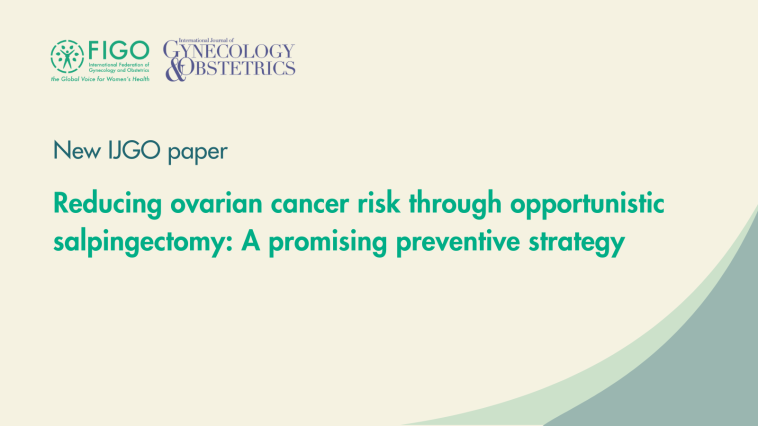Reducing ovarian cancer risk through opportunistic salpingectomy: A promising preventive strategy

The International Journal of Gynecology & Obstetrics (IJGO) and FIGO have released a new paper emphasising the potential of opportunistic salpingectomy (OS) as an effective strategy to reduce ovarian cancer risk among average-risk women.
FIGO recognises the urgent need for safe and effective preventive measures against epithelial ovarian cancer—one of the most lethal gynecological malignancies— and supports OS as a standard care practice for women undergoing abdominal or pelvic surgery who have completed their families.
Epithelial ovarian cancer often develops from the fallopian tube epithelium, not the ovary itself. This has led to a growing focus on removing fallopian tubes while preserving the ovaries to maintain hormonal benefits before menopause. Emerging data supports that OS, especially when performed for sterilization or other benign reasons, reduces ovarian cancer risk by 42-77% compared to traditional tubal ligation. A recent meta-analysis also found a 49% overall reduction in ovarian cancer risk after bilateral salpingectomy.
The paper highlights that OS does not add significant surgical risk, time or cost and does not affect ovarian reserve or hormonal function. OS is increasingly being offered during common gynecological procedures, such as hysterectomy or cesarean sections, and even during surgeries in other specialties, like cholecystectomy.
FIGO advocates for this risk-reducing strategy to be adopted more widely, with proper patient counseling and informed consent. Training and collaboration between gynecological and other surgical specialties are crucial to implementing this life-saving practice effectively.
For more details, read the full paper in IJGO.